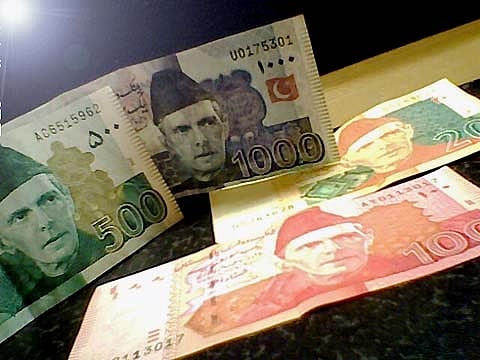

Taking cue apparently from a sharp rise in Pakistans default risk in global bond markets, foreign investors have returned to the selling counters in the domestic market, as they pulled out $12 million (Rs 2.34 billion) by offloading Pakistan Investment Bonds (PIBs) in a single day, media reports said.
Cumulatively, in the first 10-and-a-half months of the current fiscal year 2021-22, they have sold PIBs and T-bills worth a net $590.39 million, according to the central bank's data on Tuesday, The Express Tribune reported.
"Pakistan's default risk measured through the Credit Default Swap (CDS) has spiked to 16 per cent in global bond markets," Head of Research at Arif Habib Limited (AHL), Tahir Abbas, said while talking to The Express Tribune, adding: "It (CDS) usually hovers around 6-8 per cent."
The yields on Pakistan's Eurobond maturing in 2024 have also shot up to somewhere around 14-15 per cent as compared to around 7-8 per cent when the economy stood stable in the recent past.
BMA Capital Executive Director Saad Hashemy pointed out that such a sharp increase in the country's default risk (to 16 per cent) came after 2008. However, Pakistan has never defaulted on any international payments and it would find a way out this time around as well, he said, The Express Tribune reported.
"The 2008 financial crisis was worse as compared to the current one," he said, adding that the country had managed to repay matured Eurobond worth around $500 million in 2008.
"Foreigners are pulling out investment because of the recent sharp devaluation of Pakistani rupee against the US dollar amid the ongoing political and economic uncertainty in the country," he said.
The domestic currency has nosedived 5.41 per cent (or Rs 10.05) to Rs 195.74 against the US dollar in the inter-bank market during the past eight consecutive working days till Tuesday.
The pressure on the rupee is mounting due to the fast depletion of the country's foreign exchange reserves. The reserves have dropped by around $7 billion in the past five months to a 22-month low of $10.3 billion, The Express Tribune reported.
With such low reserves, the country's import capacity has shrunk to six weeks only, from the usual three months of import cover.
Source : IANS